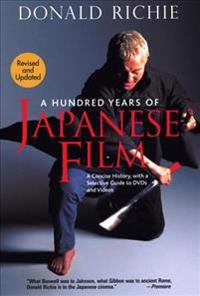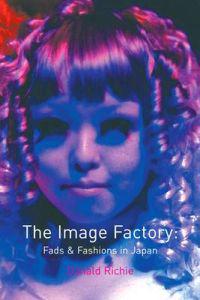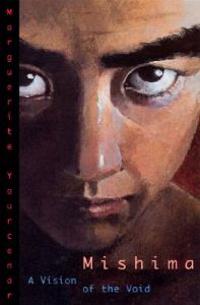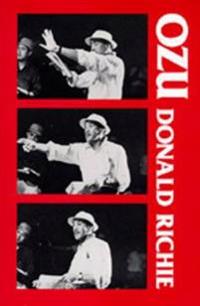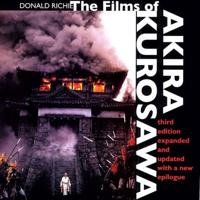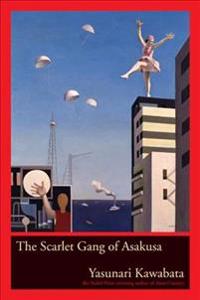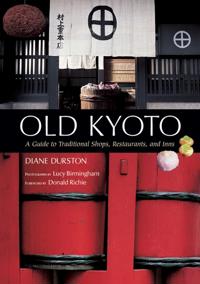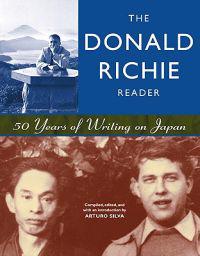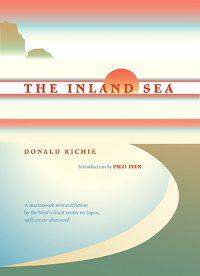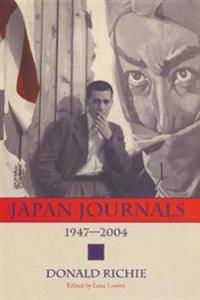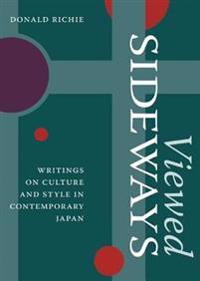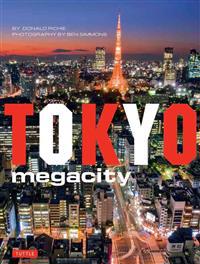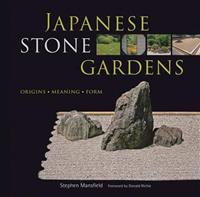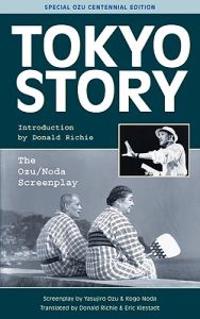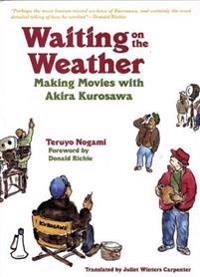A Hundred Years of Japanese Film (Pocket)
avDonald Richie, Paul Schrader, Donald Richie
ISBN: 9781568364391 - UTGIVEN: 201209The authoritative guide to Japanese film, completely revised and updated.
Now available in paperback for the first time, A Hundred Years of Japanese Film by Donald Richie, the foremost Western expert on Japanese film, gives us an incisive, detailed, and fully illustrated history of the country's[...]The Image Factory (Pocket)
avDonald Richie, Roy Garner, Donald Richie
ISBN: 9781861891532 - UTGIVEN: 2003-08The Japanese have seized upon fads and fashion as an arm of enterprise to a much greater extent than anywhere else in the world. Donald Richie's book is both an investigation into fads, fashions and style and an appreciation of their inherent meanings.[...]
Mishima: A Vision of the Void (Häftad)
avMarguerite Yourcenar, Donald Richie
ISBN: 9780226965321 - UTGIVEN: 2001-09On November 25, 1970, Japan's most renowned postwar novelist, Yukio Mishima, stunned the world by committing ritual suicide. Here, Marguerite Yourcenar, a brilliant reader of Mishima and a scholar with an eye for the cultural roles of fiction, unravels the author's life and politics: his affection f[...]
The Films of Akira Kurosawa (Häftad)
avDonald Richie
ISBN: 9780520220379 - UTGIVEN: 199901In an epilogue provided for his incomparable study of Akira Kurosawa (1910-1998), Donald Richie reflects on Kurosawa's life work of thirty feature films and describes his last, unfinished project, a film set in the Edo period to be called The Ocean Was Watching. Kurosawa remains unchallenged as one [...]
The Scarlet Gang of Asakusa (Häftad)
avYasunari Kawabata, Donald Richie, &X014c Ta Sabur&x014d
ISBN: 9780520241824 - UTGIVEN: 2005-04A new translation of the only work not currently available in English by a Nobel-Prize winning author and the best known Japanese writer outside of Japan.[...]
Old Kyoto: The Updated Guide to Traditional Shops, Restaurants, and Inns (Häftad)
avDiane Durston, Donald Richie
ISBN: 9781568365459 - UTGIVEN: 2013-11A completely revised version of the classic guidebook to Kyoto, with a foreword by Donald Richie.
Down the cobbled paths and behind the tranquil noren curtains of Kyoto, the old way of life goes on, nurtured in the restrained furnishings of the traditional inns and in the old shops where fine ha[...]The Donald Richie Reader (Häftad)
ISBN: 9781880656617 - UTGIVEN: 2003-11No one has written more, or more artfully, about Japan and Japanese culture than Donald Richie. Richie moved to Tokyo just after World War II. And he is still there, still writing. This book is the first compilation of the best of Richie's writings on Japan, with excerpts from his critical work on f[...]
The Inland Sea (Häftad)
avDonald Richie
ISBN: 9781880656693 - UTGIVEN: 200210"Earns its place on the very short shelf of books on Japan that are of permanent value."--"Times Literary Supplement. ""Richie is a stupendous travel writer; the book shines with bright witticisms, deft characterizations of fisherfolk, merchants, monks and wistful adolescents, and keen comparisons o[...]
Japan Journals (Häftad)
avDonald Richie
ISBN: 9781880656976 - UTGIVEN: 200510"Richie should be designated a living national treasure."--"Library Journal""Wonderfully evocative and full of humor... honest, introspective, and often poignant."--"New York Times""No one has written with more concentration about the peculiar quality of exile enjoyed by the "gaijin," the foreigner [...]
Viewed Sideways: Writings on Culture and Style in Contemporary Japan (Häftad)
avDonald Richie
ISBN: 9781933330983 - UTGIVEN: 2011-09"An indispensable guide to Japanese cinema and culture." --"Library Journal"
"Viewed any which way, Japan through the eyes of Donald Richie is an interesting and rewarding place to read about. This is...yet another reminder that he is a master of the short essay and a thought-provoking guide to [...]Japanese Stone Gardens (Inbunden)
avStephen Mansfield, Donald Richie
ISBN: 9784805310564 - UTGIVEN: 2009-09Tokyo Story (Pocket)
avYasujiro Ozu, Kogo Noda, Donald (TRN) Richie
ISBN: 9781880656808 - UTGIVEN: 2003-09Yasujiro Ozu's 1953 Tokyo Story is regularly rated among the top films ever made and will soon be reissued on DVD. Ozu and cowriter Kogo Noda viewed the script as literature; once completed, it was little changed during filming. Here is a translation of the Japanese screenplay to Tokyo Story, with c[...]
Waiting on the Weather (Inbunden)
avTeruyo Nogami, Donald (FRW) Richie, Juliet Winters (TRN) Carpenter
ISBN: 9781933330099 - UTGIVEN: 2006-12Teruyo Nogami was a relative newcomer to film production when hired as a continuity/script assistant on Akira Kurosawa's Rashomon. A witness to its filming-and its near destruction in a fire-over the next fifty years she worked on all the master's films-Ikiru, Seven Samurai, Kagemusha, and Dreams. N[...]

